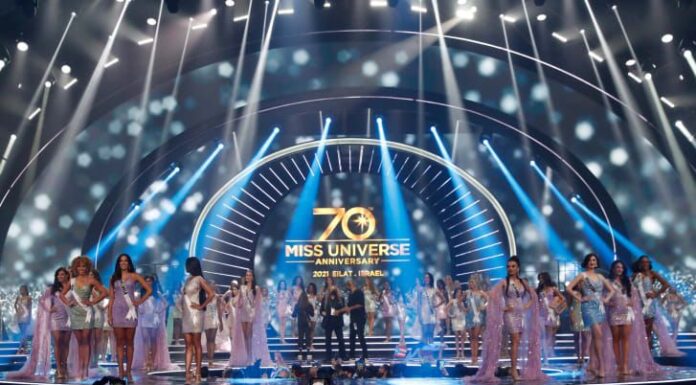The Miss Universe pageant on Sunday will be the second in the Covid era. Prior to the main event, Israel’s borders were supposed to be open to immunized tourists, allowing thousands of superfans from around the world to attend. However, two weeks before the tournament, the Israeli government quickly closed its borders to foreign nationals after learning of the Omicron variation, adding to the already-complicated situation.
When Miss France Clemence Botino arrived in the country, she tested positive for Covid-19 and was placed in a hotel quarantine, jeopardizing her participation. Fortunately, she was able to leave just in time for Friday’s preliminary round.
“Being in Israel this year presented new hurdles because we had to stay up to date on which immunizations would be accepted, as well as travel and quarantine days,” said Meg Omecene, Director of Communications for Miss Universe.
In order to attend, all staff and contestants had to be completely vaccinated within six months. They must also wear masks at all times while not on stage and are tested on-site every 48 hours in a dedicated tent.
“It’s been a fairly demanding Covid production,” Omecene continued, “but we’re all here and getting ready for Sunday.” Miss USA, Elle Smith, told CNN that Israel’s Covid regulations are “far tougher here than in the States in terms of protocol,” so she feels “like we’re taking every step necessary to conduct an event like this.”
Malaysia, a long-time Miss Universe participant, won’t be at the 2021 event. Pandemic restrictions meant the country did not hold a national beauty pageant to determine a Miss Universe contestant. But some observers have said a spat between Malaysia and Israel earlier this year, which included banning Israeli athletes from participating in a squash competition in Malaysia, also played a role in the country’s decision to sit out the 2021 competition.
The United Arab Emirates — which also normalized ties with Israel in 2020 — had planned for its debut at the global beauty pageant in Eilat. But the country canceled its contest to declare a national beauty queen at the last minute due to “time restrictions,” and Covid-19 concerns, according to a statement on its official website.
In a three-hour live broadcast, contestants give personal statements and model swimsuits and evening gowns to crown Andrea Maza’s successor. This year’s pageant, however, has taken on a decidedly political tone, following repeated requests to boycott the event due to Israeli settlement policies.







